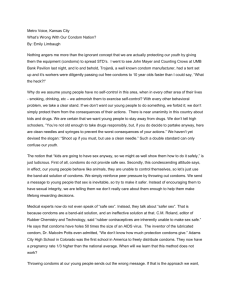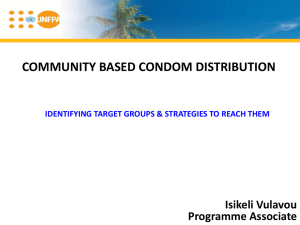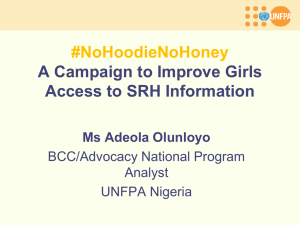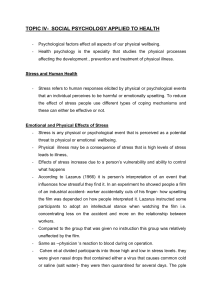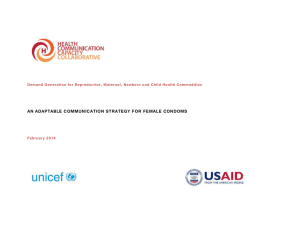Takudzwa Mukiwa (THT) - HIV Prevention England
advertisement
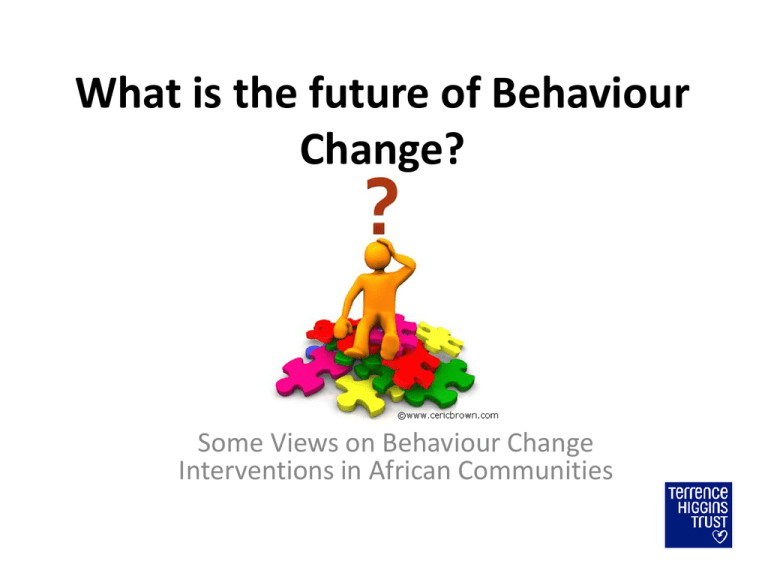
What is the future of Behaviour Change? Some Views on Behaviour Change Interventions in African Communities How would you rate the performance of current HIV related behaviour change interventions ? Above average Average Below average No Future Without Behaviour Change! Myth # 3. Behavioural interventions don’t work, we can only rely on biomedical prevention “What we have to remember is that even treatment is a behavioural intervention with its strong emphasis on compliance. We should remember that for example PrEP only works when you take it!’” Peter Piot: 10 Myths about the AIDS Response http://www.aidsalliance.org/NewsDetails.aspx?Id=291690 Two Specific Challenges for the Future • How do we bring about behaviour change? • How do we challenge community norms that are barriers to behaviour change? 1. Condoms Issues with condoms (HI Workers’ Perspective) Issues with condoms (Community Perspective) “Old Product- Same Old Message-Same Old Packaging” Clients cannot see relevance of condoms in their relationships “What’s the evidence that it is an effective intervention tool for African communities?” Negotiating condom use can be difficult Messages might not be compatible with the context Access can be a problem for some people Assumptions that men can use condoms Being asked to use condoms all of a sudden when in a long term relationship where they haven’t been using condoms “Measuring Impact of condom distribution programmes can be difficult” Faith guidance might not encourage condom use Workers not equipped to discuss how clients can negotiate condom use with their partners Interventions promoting condom use seen as “promoting promiscuity’ Campaign Advisory Group Minutes Questions on condoms • How do we respond better to community concerns on condoms and involving the community to come up with solutions? • How to move beyond the ‘protection’ message approach? • Improving access to condoms: » internet-based assessment and ordering systems (FITS ME)? » Better condom supplies for outreach workers? • Better planning and monitoring and evaluation? 2. Challenging Social Norms • Community Champions: To change the tide on narratives on what is considered ‘normal’ • Community Segmentation: norms in one African community are not necessarily the norm to all African communities. • Better community mobilisation: More community involvement and representation at policy, commissioning and delivery levels. To consider… As we go forward we face an environment with; • Limited resources • Technological advancements • • • • New testing technologies More advanced testing technologies Improvements to treatment Better communications technologies Going forward • Behaviour change will continue an essential part of the response to HIV • How do we innovate in promoting ‘old products’ such as condoms? • How do we improve how we engage African communities so that they are and feel as part of the response? • How we make use of new technologies to encourage behaviour change? Thank You! Takudzwa Mukiwa Takudzwa.mukiwa@tht.org.uk @musarinya

